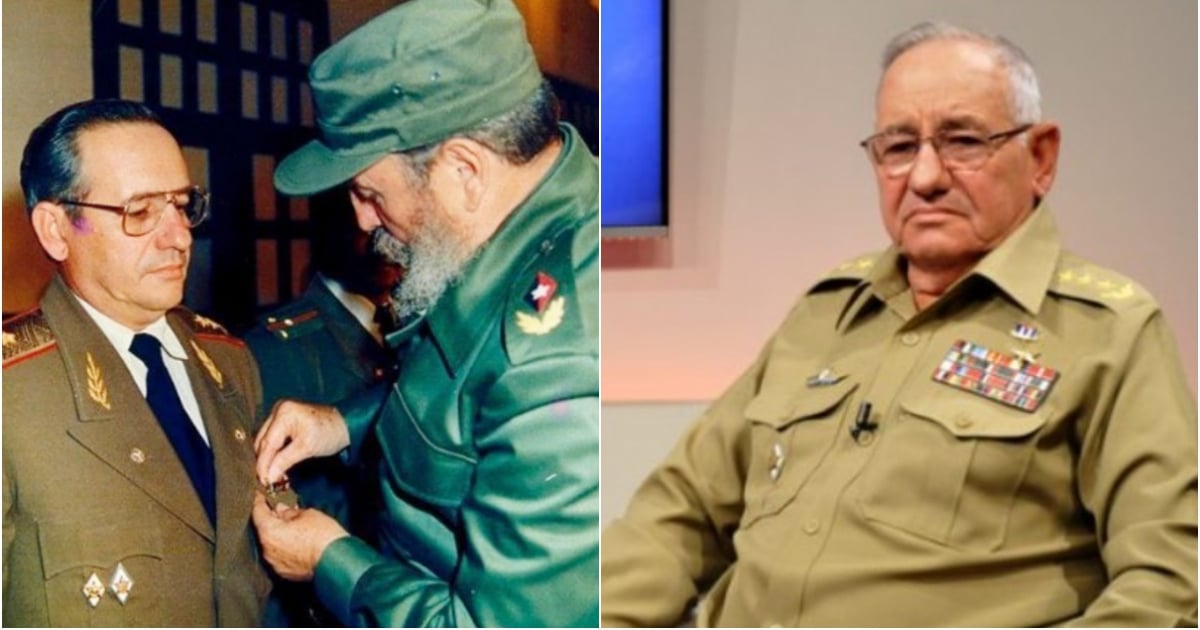
General Ramón Espinosa Martín, first deputy minister of the Revolutionary Armed Forces (FAR), passed away on Tuesday afternoon at the age of 85.
The official note from the FAR, repeated in the press, did not specify the cause of death and simply stated that he died "suddenly."
In addition to his position in the Armed Forces, Espinosa Martín was a member of the Political Bureau of the Central Committee of the Communist Party of Cuba (PCC) and a deputy to the National Assembly of People's Power.
He also held the titles of Hero of the Republic of Cuba and of Labor, according to the brief official note, which referred to his “brilliant record of service to the Homeland and to the FAR.”
The body of the eighty-year-old general will be cremated and the ashes placed in the Granma room of the Ministry of Revolutionary Armed Forces until the funeral honors are held.
The ruler Miguel Díaz-Canel expressed his condolences through a post on X regarding the passing of the high-ranking Cuban military official.
"With deep sorrow for the physical departure of Army Corps General Ramón Espinosa Martín. I embrace his comrades from the FAR and his family and friends. The legendary hero of Cabinda will continue to inspire the brave Cuban soldiers. Farewell, dear comrade," wrote Díaz-Canel.
Born on March 12, 1939, into a farming family in Camajuaní, former province of Las Villas, Espinosa Martín joined the clandestine struggle against Fulgencio Batista in the 1950s as part of the 26th of July Movement.
He then joined the guerrilla group of the Revolutionary Directorate 13th of March in the Escambray Mountains, and became the second chief of the "Menelao Mora" Command.
After 1959, he remained in the Army, studied military tactics in Cuba and the Soviet Union, and progressively rose in the ranks within the FAR.
In the Angola war, he was the chief of the Cuban instructors in 1975, where he led the famous battle of Cabinda, in which he was seriously injured.
Subsequently, he was the head of the Cuban military mission in Ethiopia between 1980 and 1982.
Upon his return, he was appointed Chief of the Eastern Army, a position he held for more than twenty years.
Ramón Espinosa Martín's curriculum includes having presided over the military tribunal that sentenced General Arnaldo Ochoa to death and imposed lengthy prison sentences on other high-ranking officers in 1989.
In 2001, Espinosa Martín was promoted to Army Corps General, the highest rank after Army General, and in 2009 he was appointed deputy minister of the FAR. In 2021, he took on the position of first deputy minister.
Member of the Central Committee of the PCC since 1980, he was part of the Political Bureau since 1997, and served as a deputy to the National Assembly for several decades.
He was the author of two books about his experiences in the battle of Cabinda and guerrilla warfare in Cuba, and he received numerous decorations.
The death of Ramón Espinosa Martín adds to that of four other Cuban generals: Romárico Vidal Sotomayor, Juan Antonio Hernández Hernández, Jorge Luis Guerrero Almaguer, and Juan Israel Cervantes Tablada.
The death of old Cuban generals such as Ramón Espinosa Martín and other "historic" figures highlights the urgency of a generational change that could pave the way for the changes the country desperately needs.
Those high-ranking officials, trained in the ideological and military rigidity of a system that has kept Cuba in a political and economic standstill, symbolize a past that has stifled any attempt at meaningful openness or reform.
What do you think?
SEE COMMENTS (4)Filed under: